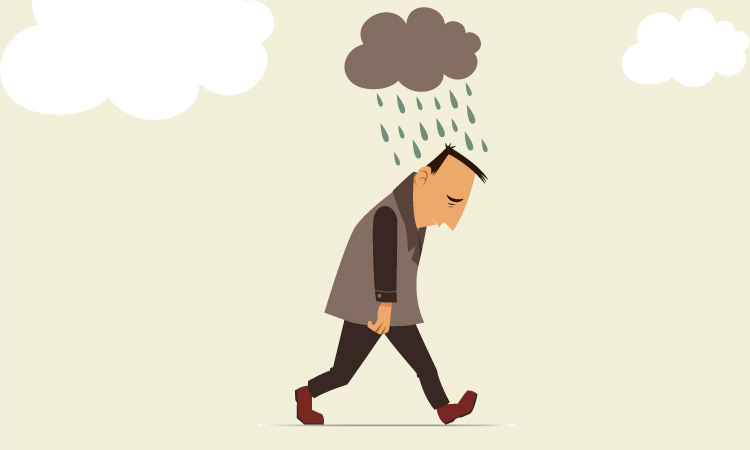“The bad stuff is easier to believe. You ever notice that?” Julia Roberts as Vivian in Pretty Woman (1990).
As it turns out, Roberts’ character, Vivian, the hooker with the heart of gold, was spot-on. The bad stuff is easier to believe and the reasons why may surprise you.
For starters, our proclivity for paying attention to negative rather than positive information is an evolutionary hand-me down from our cave dwelling ancestors. Back then alertness to danger (the bad stuff) was a matter of life and death. “We inherited the genes that predispose us to give special attention to those negative aspects of our environments that could be harmful for us,” explains psychologist and happiness researcher Timothy J Bono, who teaches a course in the Science of Happiness at Washington University in St Louis.
Moreover, negative emotions rouse the amygdala, the almond-shaped brain structure that psychologist Rick Hansen, author of Buddha’s Brain and founder of the Wellspring Institute for Neuroscience and Contemplative Wisdom calls “the alarm bell of your brain.” According to Hansen, the amygdala “uses about two-thirds of its neurons to look for bad news…Once it sounds the alarm, negative events and experiences get quickly stored in memory—in contrast to positive events and experiences, which usually need to be held in awareness for a dozen or more seconds to transfer from short-term memory buffers to long-term storage.”
Not only do negative events and experiences imprint more quickly, they also linger longer than positive ones according to researcher Randy Larsen. This “stickiness” is known as positive-negative asymmetry or the negativity bias. In other words, for a multitude of reasons, including biology and chemistry, we’re more likely to register an insult or negative event than we are to take in a compliment or recall details of a happy event.
And yet, despite the evolutionary hand we’ve been dealt, the degree to which we’re able to override this “default” setting and avoid falling into abyss of self-recrimination, insecurity, sadness, anger, bitterness and other negative emotions depends on a slew of factors including our upbringing, the input we’ve received from those around us and how we interpret what we’ve been told. “The single most important underlying factor is….how we talk to ourselves about our experiences,” notes Dr Kenneth Yeager, director of STAR (Stress, Trauma and Resilience) Program at The Ohio State University Wexner Medical Center. “If you challenge yourself…to be mindful of your daily activities, noticing what’s important [and what isn’t], you are more likely to have positive life experiences,”
Other ways to counterbalance our proclivity towards negativity? New York city-based psychiatrist Dr Grant Brenner, Assistant Clinical Professor of Psychiatry, Mt Sinai Beth Israel Hospital, advises:
1. Be poised to gently recognize what is happening when negative patterns start to get activated, and practice doing something each and every time—even something very small—to break the pattern.
2. Notice what the negative self-dialogue is and substitute positive approaches. “You idiot!” becomes “Gee, I wish I had made a different choice though it is a good chance to learn for next time.”
3. It can also help (though this tactic can feel strange at first) to approach your mean inner voice with kindness. Talk to yourself as you would a friend. When negative thoughts intrude ask yourself, “Oh, are you ok? What’s wrong? Why are you so angry? Are you feeling hurt?” The idea is to good-naturedly interrupt yourself whenever you start to trash yourself.
And perhaps most important, notes Brenner is to “cultivate a gentle, curious and patient attitude with yourself. Learn to celebrate small victories [over negativity and self-recrimination] while understanding that you may have days of back-sliding. It’s all a natural part of the learning and growth process.”
And keep in mind what Eleanor Roosevelt famously said: “No one can make you feel inferior without your consent.” Refuse to consent.
To find out about Rose’s thoughts on how to live a happier life, click here



